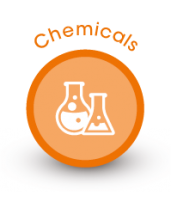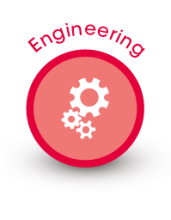
CoPro: Operator support for improving energy and material efficiency
The Problem
- The process industry continuously searches for options to move towards a more energy and resource-efficient production.
- Chemical production plants are complex systems, and the most resource-efficient operation is not easy to identify under varying conditions.
- INEOS in Köln has been looking for a solution in between full automation operation at standard constant reference values to improve the resource efficiency of their production plants.
The Solution
- A data-based surrogate modelling framework was developed to derive baseline models that provide reference values for the most resource-efficient operation.
- The models are stored in a model management platform and the results are visualised on dashboards of the plant operators.
- Statistical methods are used to guide operators to the root causes of deviations from the most efficient operation.
- The used toolchain is generic and easily transferable to other reference models.
Resources

The goal of the CoPro project was to develop and to demonstrate methods and tools for process monitoring and optimal dynamic planning, scheduling and control of plants, industrial sites and clusters under dynamic market conditions, to provide decision support to operators and managers and to progress to automated closed-loop solutions to achieve an optimally energy and resource efficient production.
CoPro brought together 17 partners from 8 EU countries, including 5 industrial end users and 6 technology providing SMEs. The project developed solutions for the plant-wide optimisation of large plants, for balancing production and consumption in industrial parks for industrial symbiosis, and addressed power plant scheduling and demand-side response. It further developed online data analytics for anomaly detection, and decision support for plant operators and managers. The solutions can be integrated into the IT infrastructure of the plants via an integration platform that supports the connection to different IT systems. CoPro developed model libraries for the efficient development of advanced optimisation-based solutions and techniques and software for hybrid modelling and model management.
The developments of CoPro were motivated by and applied to challenging use cases from different sectors of the process industries:
- (Petro-)chemical production;
- Cellulose fiber production;
- Production, formulation and packaging of consumer goods;
- Sterilisation and packaging of food.
CoPro demonstrated that significant savings of energy and resources are possible by using advanced technologies for monitoring, decision support, optimisation, and planning and scheduling.












